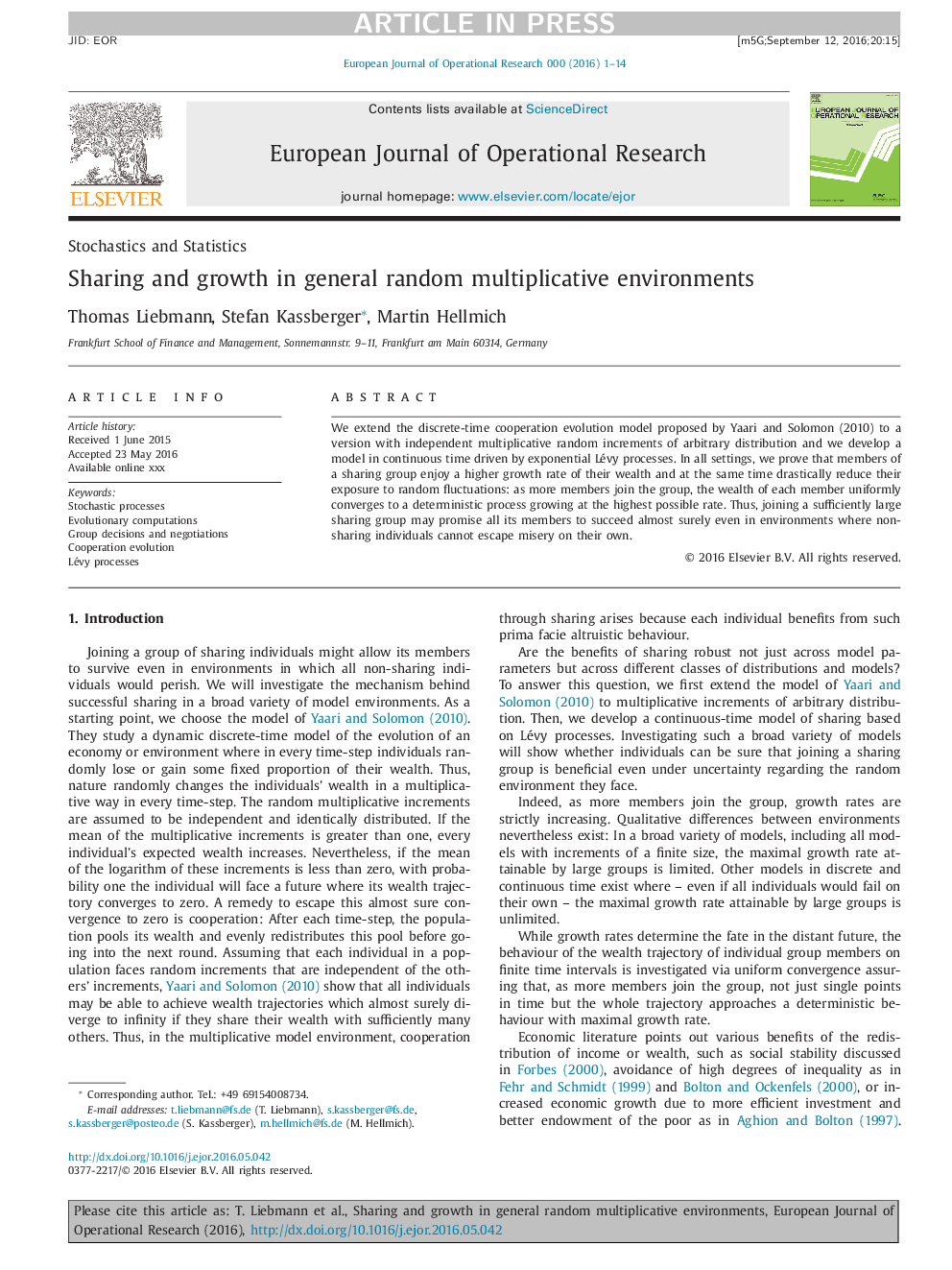| Article ID | Journal | Published Year | Pages | File Type |
|---|---|---|---|---|
| 4959961 | European Journal of Operational Research | 2017 | 14 Pages |
Abstract
We extend the discrete-time cooperation evolution model proposed by Yaari and Solomon (2010) to a version with independent multiplicative random increments of arbitrary distribution and we develop a model in continuous time driven by exponential Lévy processes. In all settings, we prove that members of a sharing group enjoy a higher growth rate of their wealth and at the same time drastically reduce their exposure to random fluctuations: as more members join the group, the wealth of each member uniformly converges to a deterministic process growing at the highest possible rate. Thus, joining a sufficiently large sharing group may promise all its members to succeed almost surely even in environments where non-sharing individuals cannot escape misery on their own.
Keywords
Related Topics
Physical Sciences and Engineering
Computer Science
Computer Science (General)
Authors
Thomas Liebmann, Stefan Kassberger, Martin Hellmich,
